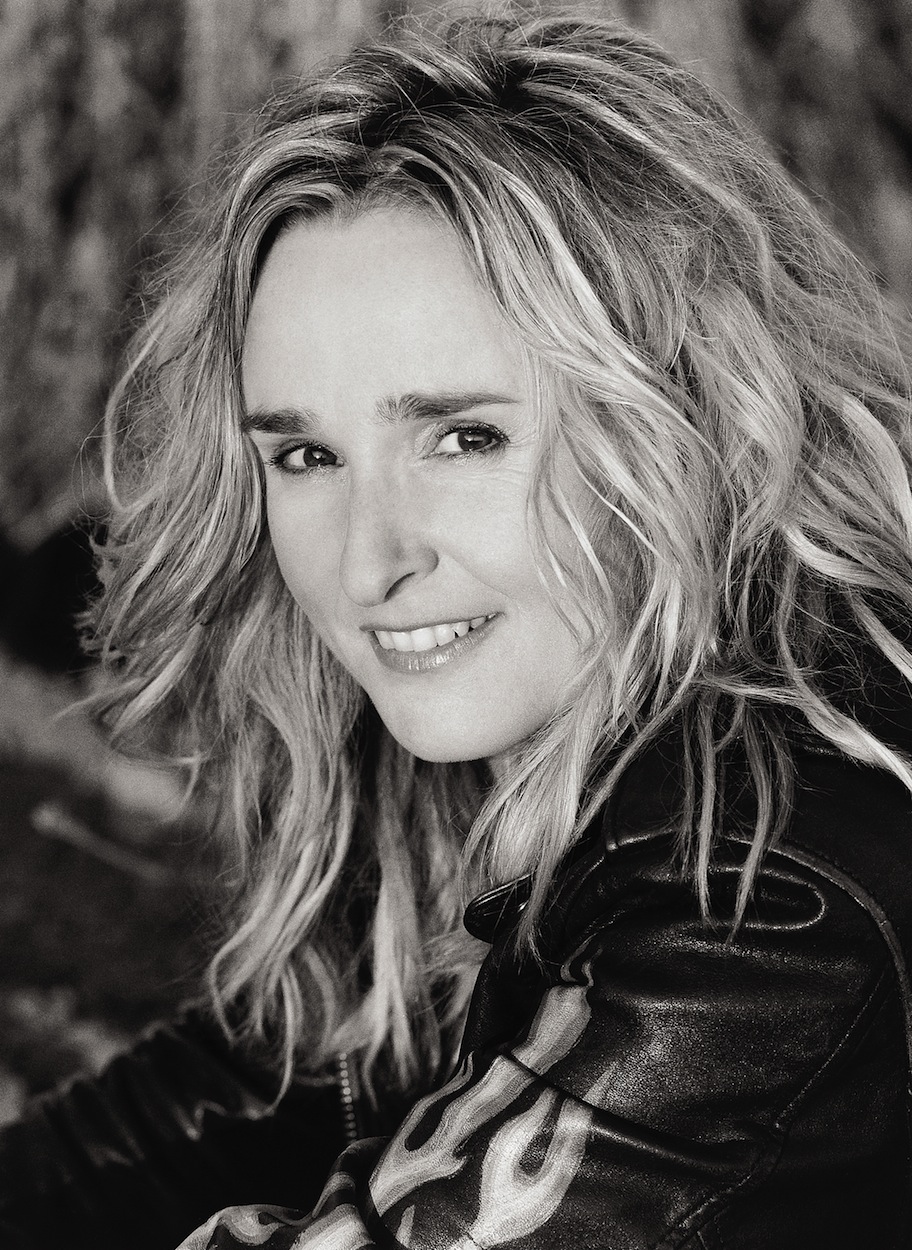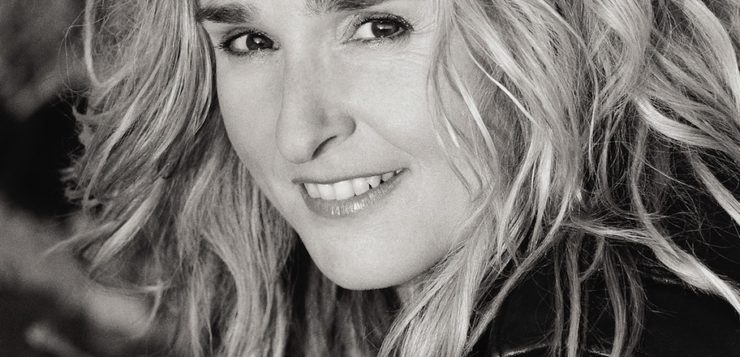Melissa Etheridge has been a lesbian rock icon since 1988, when audiences who had not heard her at clubs and women’s music festivals grabbed her debut album on Island Records. Defying the odds by succeeding in the mainstream as a woman rocker whose work won coverage on VH1 and MTV, as well as in lesbian publications and Rolling Stone, Melissa came out publicly at Bill Clinton’s inauguration in January 1993, and then performed at the March on Washington for gay and lesbian rights later that spring, wrapping up the year with the fall 1993 release of an album defiantly entitled Yes, I Am. Any possible backlash or fallout from that openness would be hard to find: in her fifteen-year career, Melissa has sold approximately 25 million albums worldwide, as well as winning two Grammy awards and twelve nominations.
 During her very public partnership with Julie Cypher, Melissa continued to make headlines by becoming a co-parent to their children Beckett and Bailey—whose father and sperm donor was revealed to be legendary rocker David Crosby in a sensational Rolling Stone cover story. The romantic breakup that followed, emotionally and musically chronicled in Melissa’s albums Breakdown and Skin, was detailed in her 2001 autobiography The Truth Is…, which is frank in its discussion of abusive family and love relationships. The tide turned for Melissa two years ago with a new love, Tammy Lynn Michaels. The couple’s recent wedding made the cover of The Advocate. As a model of the new alternative lesbian family in America—the children alternately live with mom Julie and with Melissa and Tammy, and donor/dad David Crosby is nearby—Melissa has the rare opportunity of speaking, through music and as a headliner at political rallies, as a lesbian mom, partner, and successful middle-aging rock icon.
During her very public partnership with Julie Cypher, Melissa continued to make headlines by becoming a co-parent to their children Beckett and Bailey—whose father and sperm donor was revealed to be legendary rocker David Crosby in a sensational Rolling Stone cover story. The romantic breakup that followed, emotionally and musically chronicled in Melissa’s albums Breakdown and Skin, was detailed in her 2001 autobiography The Truth Is…, which is frank in its discussion of abusive family and love relationships. The tide turned for Melissa two years ago with a new love, Tammy Lynn Michaels. The couple’s recent wedding made the cover of The Advocate. As a model of the new alternative lesbian family in America—the children alternately live with mom Julie and with Melissa and Tammy, and donor/dad David Crosby is nearby—Melissa has the rare opportunity of speaking, through music and as a headliner at political rallies, as a lesbian mom, partner, and successful middle-aging rock icon.
That everything in her life has finally come together in emotional and professional harmony fuels the exuberant format of her new album, Lucky, as well as her “Superclub” tour to promote the CD, which will take Melissa to venues such as L.A.’s House of Blues and the Fillmore in San Francisco, as well as Roseland in New York. Significantly, the otherwise celebratory album contains a post-9/11 ballad, “Tuesday Morning,” challenging U.S. government homophobia in not crediting gay victim Mark Bingham’s heroism—or compensating his surviving partner. After Melissa’s publicist approached The G&LR about an artist profile interview, it was my honor to talk to her by phone. Rest assured, her speaking voice is as sultry as the musical cadence a generation of lesbian fans came out to.
For more information on Melissa Etheridge’s tour, visit www.melissaetheridge.com.
Bonnie J. Morris teaches women’s studies at George Washington University.






